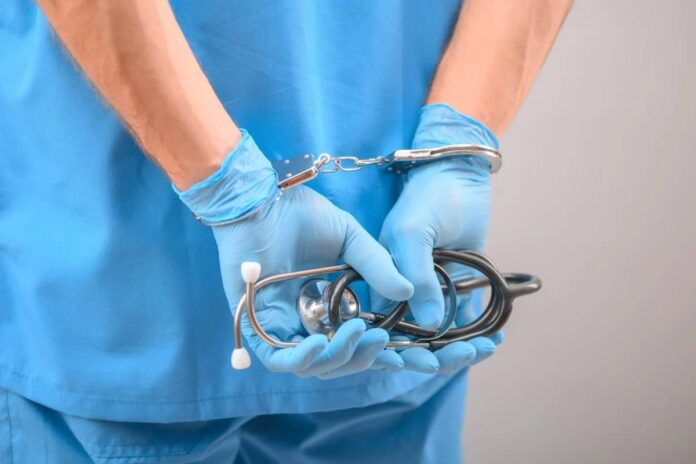Anti-corruption campaign brings down senior health officials, hospital directors, academics, and pharmaceutical company executives
More than 350 prominent figures in China’s healthcare industry were punished in last year’s anti-corruption campaign as Beijing doubled down on its sweeping crackdown.
According to a report from the National Supervisory Commission (NSC), China’s top anti-corruption watchdog, Beijing has worked to “thoroughly investigate” cases in which healthcare professionals exploit medical services and misuse insurance funds.
It has also taken strong action against unethical practices in the industry, such as kickbacks and accepting bribes, according to the report.
The NSC delivered the report to the National People’s Congress (NPC) Standing Committee, China’s top legislative body, on December 22.
Last year, there were 52,000 medical corruption cases filed nationwide, with 40,000 people punished and 2,634 referred for prosecution, the NSC report said.
China’s anti-corruption efforts in the medical sector have intensified over the past two years due to public outrage over misconduct and unethical practices.
Recognizing systemic issues such as the misuse of medical insurance funds and pharmaceutical kickbacks, Beijing has implemented rigorous regulatory measures and carried out wide-ranging investigations targeting corruption in the industry at every level.
The scope of the crackdown has been extensive, bringing down at least 350 prominent figures this year, including senior health officials, hospital directors, top academics, and pharmaceutical company executives, according to a report by state-run China News Service on Tuesday.
More than a third of them were mid-level officials, while another 30 held bureau-level positions. More than 180 hospital directors and Communist Party secretaries were investigated, including at least 63 from top-tier hospitals, the report said.
Noteworthy cases included Song Yufeng and Cai Renjie, two former heads of provincial medical insurance authorities in Guizhou and Hainan provinces, as well as Cheng Yingsheng, director and deputy party head of Shanghai’s Tongji Hospital, and traditional Chinese medicine expert Pang Guoming.
Some of the officials were investigated nearly a decade after leaving office.
The report noted that at least 44 people turned themselves into authorities.
The Chinese government is establishing a long-term mechanism to combat corruption in the healthcare sector. It has issued a set of new compliance guidelines aimed at preventing bribery and malpractice by pharmaceutical companies and medical institutions.
A revision to a Criminal Law amendment, effective since March, stipulated heavier punishments for those who offer bribes in the food, medicine, social security and healthcare sectors.
In October, the State Administration for Market Regulation (SAMR) published a draft guideline on anti-corruption in the healthcare industry, providing clear directives on managing activities and resources that tend to be abused, such as hospitality spending, clinical research funding, and the use of discounts and rebates.
In November, the NSC launched a year-long crusade to address corruption and irregularities in China’s funeral industry. In 2025, the anti-corruption authority will roll out campaigns related to the use of rural revitalization funds, management of medical insurance funds and elderly care services.
Source: SCMP




